 Construction new home is one of the biggest investments one can ever made because it entails a big amount of money as well as effort and time. One should know or at least familiarize himself on the house construction process so that the owner will understand if the house is properly constructed.
Construction new home is one of the biggest investments one can ever made because it entails a big amount of money as well as effort and time. One should know or at least familiarize himself on the house construction process so that the owner will understand if the house is properly constructed.
Building your dream is always exciting most especially when you understand the construction process. Here are some basic house construction process:
1. Preparing for the site
It include the clearing the area such as removing trees and other obstacles and cleaning the area. Also, making barracks for the construction workers as well the storage of materials such as cement and the like.
2. Excavation and layout
Once the clearing of the area is done, excavation and lay outing will be the next step. The excavation and layout process will begin by positioning a surveying instrument directly over the work points that was located seen in the house plan.
3. Foundation
Foundation process includes creating footings, slab, sub slab, foundation drainage system, foundation walls, anchor bolts and beam rockets, water proofing, slab and backfill soil. It involves the pouring of cement.
4. Framing
Framing is the process of fitting together a pieces to give structure a support and shape.
5. Roofing
Roofing activities includes making trusses and installation of roof on the house
6. Door and window installation
The door and windows will be installed to your house. The door can be made of wood while the windows can be sliding windows or jalousie windows depending on the house plan.
7. Electrical
Electrical process includes temporary electric and underground conduit, the rough in, more temporary needs, modification and warranty.
8. Plumbing
Plumbing is the installation of pipes, tanks, fittings, and other materials that will be used for water supply, heating and sanitation. It also includes the installation of kitchen and bathroom faucet, showers, toilets, jetmatic and the like.
9. Plastering
Plastering is used as coating for external and internal surface of the wall. Cement plaster is usually applied to the wall.
10. Ceiling
A ceiling is the overhead interior surface that covers the upper space. Ceiling can be metal furring or flywood.
11. Septic Tank
A septic tank is a component of septic system. A septic system is a self-contained underground in which sewage is collected and allowed to decompose through bacterial activity before draining be means of leaching field.
12. Flooring
Flooring is the installation of tiles or granite on the floor.
13. Cabinet
Setting up kitchen cabinet and built in cabinet.
14. Painting
Painting is the process of applying paint on walls, ceiling, and other parts of the house.
 Are you dreaming to have your own home but don’t want to have a contractor and as far as you know you are capable of doing the job of the contractor. So here are some steps to contract your own house?
Are you dreaming to have your own home but don’t want to have a contractor and as far as you know you are capable of doing the job of the contractor. So here are some steps to contract your own house? Last 2010, me and my husband decided to build our home, bungalow type since we have a 150 sq. meter land. Let me share the bill of materials estimate of our Architect and contractor of our home way back 2010.
Last 2010, me and my husband decided to build our home, bungalow type since we have a 150 sq. meter land. Let me share the bill of materials estimate of our Architect and contractor of our home way back 2010.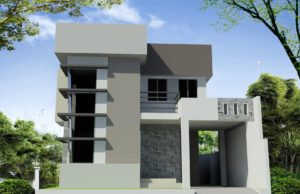 In today’s busy world, many people chose to buy a ready house to avoid the tedious work of submitting documents as requirements for house construction. Some are get a developer or contractor that will take care of all the requirements including documents and the people who will construct the house. Preparing documents for the construction is stressful for someone who is busy for their work and family but if you know how to acquire those documents, you can save more money that can be added to your house construction budget to avoid overcharged of your contractor or home builders.
In today’s busy world, many people chose to buy a ready house to avoid the tedious work of submitting documents as requirements for house construction. Some are get a developer or contractor that will take care of all the requirements including documents and the people who will construct the house. Preparing documents for the construction is stressful for someone who is busy for their work and family but if you know how to acquire those documents, you can save more money that can be added to your house construction budget to avoid overcharged of your contractor or home builders.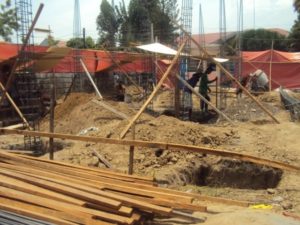 Everyone wants to have their own home but the real problem is they do not know how to start aside from financial matters. Of course, before planning to own a home, one must have an area or a piece of land where the home will be built. Also, one should finalized budget and know what designs or type of house they want. Some are planning to avail loan either from bank, lending institution or Pag-ibig.
Everyone wants to have their own home but the real problem is they do not know how to start aside from financial matters. Of course, before planning to own a home, one must have an area or a piece of land where the home will be built. Also, one should finalized budget and know what designs or type of house they want. Some are planning to avail loan either from bank, lending institution or Pag-ibig.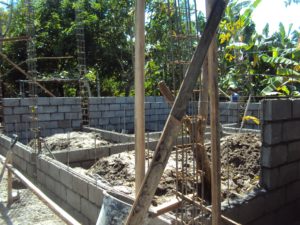 Are you planning to construct your house? Is so, it is very important to determine some things needed for house construction and be ready for it. Remember, have a house construction is much more complicated than buying a house.
Are you planning to construct your house? Is so, it is very important to determine some things needed for house construction and be ready for it. Remember, have a house construction is much more complicated than buying a house. House is one of the most important asset that a person can have most especially if you have a family. Having own house or home can be a greatest accomplishment since it is a big investment which involve large amount of money and patients.
House is one of the most important asset that a person can have most especially if you have a family. Having own house or home can be a greatest accomplishment since it is a big investment which involve large amount of money and patients.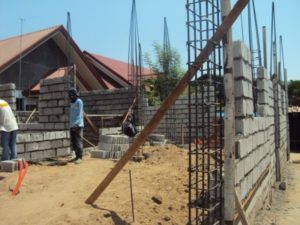 Construction delays is means the late completion of work based on the planned schedule or contract schedule. It can be minimized only when you are aware of the causes of delays and be prepare for it and prepare of possible solution.
Construction delays is means the late completion of work based on the planned schedule or contract schedule. It can be minimized only when you are aware of the causes of delays and be prepare for it and prepare of possible solution.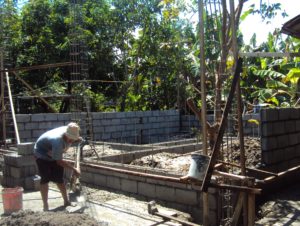 Hiring a contractor can be tricky. But of course, it is best to analyze and take a look how to have a right contractor for your dream house. It is really important that your contractor has good reputable.
Hiring a contractor can be tricky. But of course, it is best to analyze and take a look how to have a right contractor for your dream house. It is really important that your contractor has good reputable.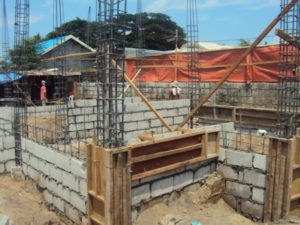
 In this modern society, it is hard to trust someone since scammers are everywhere. Building a house is requires big amount of money so better to know who can entrust your money. Contractor’s fraud is an illegal acts committed by a single contractors or firms. These acts includes using substandard repairs or offering services that scam the other party. For homeowner, the contractor’s fraud is very costly because fraudulent acts can lead to more bills or cause damage to property.
In this modern society, it is hard to trust someone since scammers are everywhere. Building a house is requires big amount of money so better to know who can entrust your money. Contractor’s fraud is an illegal acts committed by a single contractors or firms. These acts includes using substandard repairs or offering services that scam the other party. For homeowner, the contractor’s fraud is very costly because fraudulent acts can lead to more bills or cause damage to property.